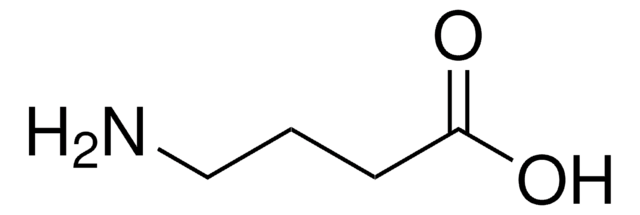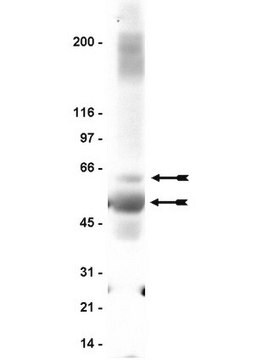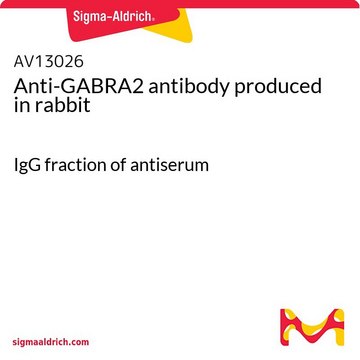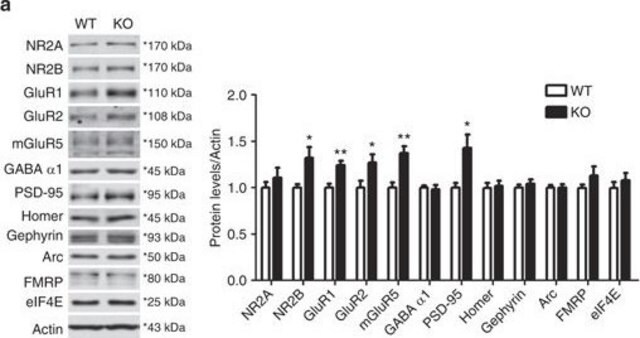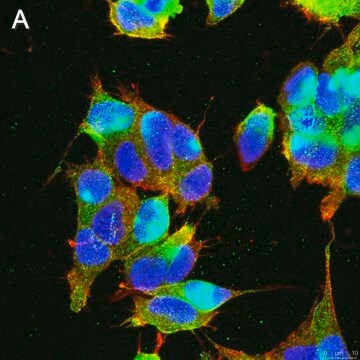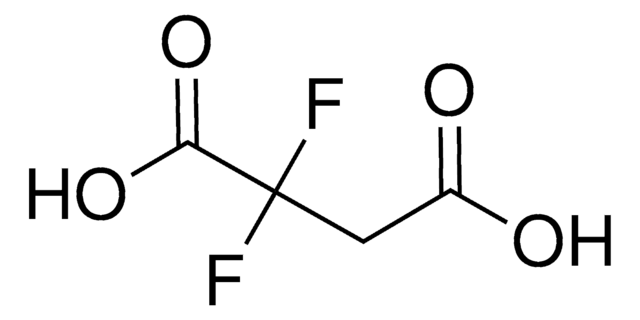MABN1724
Anti-GABA(A) Receptor α2 Antibody, clone N399/19
clone N399/19, from mouse
Synonyme(s) :
Gamma-aminobutyric acid receptor subunit alpha-2, GABA(A) receptor subunit alpha-2, Gamma-aminobutyric acid receptor A2 subunit
About This Item
Produits recommandés
Source biologique
mouse
Niveau de qualité
Forme d'anticorps
purified immunoglobulin
Type de produit anticorps
primary antibodies
Clone
N399/19, monoclonal
Espèces réactives
rat, human, mouse
Technique(s)
immunohistochemistry: suitable
western blot: suitable
Isotype
IgG1κ
Numéro d'accès UniProt
Conditions d'expédition
wet ice
Modification post-traductionnelle de la cible
unmodified
Informations sur le gène
human ... GABRA2 (2555)
Description générale
Spécificité
Immunogène
Application
Neuroscience
Ion Channels & Transporters
Western Blotting Analysis: A representative lot detected the GABA(A) receptor subunit alpha-2 target band only in brain membrane extracts from wild-type rats and mice, but not from Gabra2-knockout mice.
Immunohistochemisry Analysis: A representative lot detected GABA(A) receptor subunit alpha-2 immunoreactive regions, includinghippocampus, in rat whole brain sections (Courtesy of Professor. James S. Trimmer, UC Davis, CA, USA).
Qualité
Western Blotting Analysis: 2.0 µg/mL of this antibody detected GABA(A) receptor subunit alpha-2 in 10 µg human brain tissue lysate.
Description de la cible
Forme physique
Stockage et stabilité
Autres remarques
Clause de non-responsabilité
Vous ne trouvez pas le bon produit ?
Essayez notre Outil de sélection de produits.
Code de la classe de stockage
12 - Non Combustible Liquids
Classe de danger pour l'eau (WGK)
WGK 1
Point d'éclair (°F)
Not applicable
Point d'éclair (°C)
Not applicable
Certificats d'analyse (COA)
Recherchez un Certificats d'analyse (COA) en saisissant le numéro de lot du produit. Les numéros de lot figurent sur l'étiquette du produit après les mots "Lot" ou "Batch".
Déjà en possession de ce produit ?
Retrouvez la documentation relative aux produits que vous avez récemment achetés dans la Bibliothèque de documents.
Notre équipe de scientifiques dispose d'une expérience dans tous les secteurs de la recherche, notamment en sciences de la vie, science des matériaux, synthèse chimique, chromatographie, analyse et dans de nombreux autres domaines..
Contacter notre Service technique

